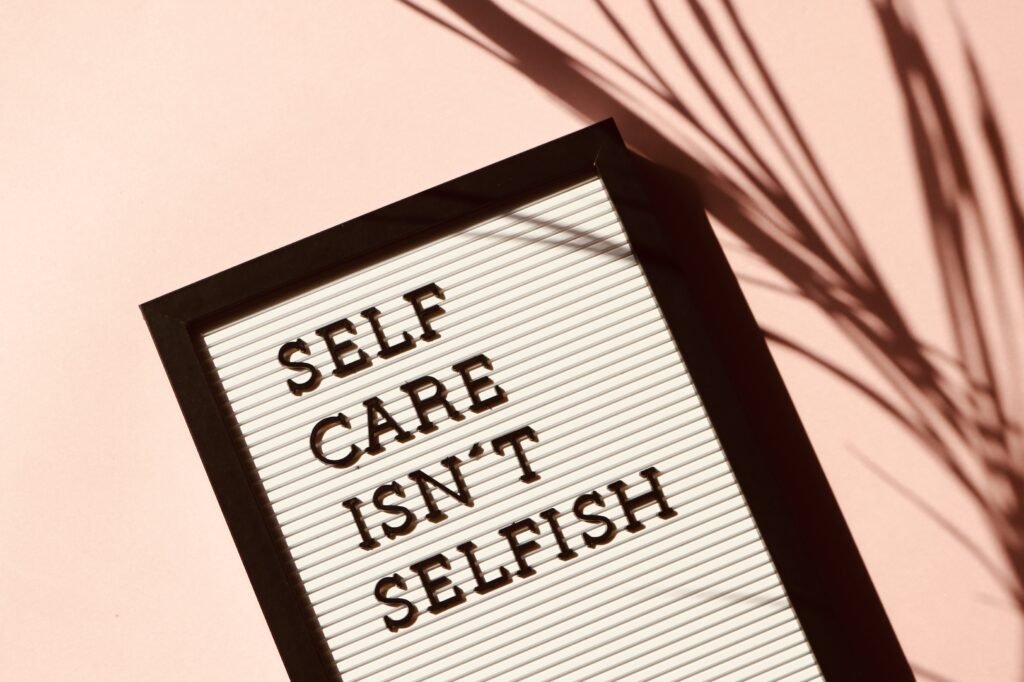In this article, you will explore a variety of community-based mental health programs that offer support and assistance to individuals facing mental health challenges. These programs, designed to foster a sense of belonging and to provide a safe space for individuals to connect with others, aim to promote recovery and enhance overall well-being. From peer support groups to respite care centers, these community-based initiatives play a vital role in improving the lives of those grappling with mental health issues. So, let’s dive in and discover the diverse range of programs that are making a positive impact in communities near you. Community-based mental health programs play a crucial role in providing support, resources, and care for individuals facing mental health challenges. These programs are designed to cater to the diverse needs of the community and offer a range of services to promote mental well-being. In this article, we will explore different types of community-based mental health programs and their significance in helping individuals on their journey towards recovery and mental wellness.
1. Local Mental Health Clinics
1.1 Publicly Funded Clinics
Publicly funded clinics are essential resources for individuals who may not have the financial means to access mental health services. These clinics offer a variety of services, such as counseling, therapy, and medication management, at reduced or no cost. They are typically funded by government agencies or grants and aim to provide equitable access to mental health care for all community members.
1.2 Nonprofit Clinics
Nonprofit clinics are another valuable community-based mental health resource. These organizations rely on donations and grants to provide essential mental health services to those in need. Nonprofit clinics often collaborate with local communities and agencies to offer a wide range of services, including counseling, group therapy, and psychiatric evaluation. The focus of these clinics is on affordability, accessibility, and meeting the specific needs of the community.
1.3 Private Clinics
Private clinics are typically operated by mental health professionals in private practice. While they may not be as accessible or affordable as publicly funded or nonprofit clinics, they offer various advantages, including flexible scheduling options and more specialized services. Private clinics often have a wider range of treatment options and can cater to specific mental health conditions or therapeutic approaches. Individuals who have the means to afford private services may choose this route for personalized and tailored mental health care.
2. Community Mental Health Centers
2.1 Services Offered at Community Mental Health Centers
Community mental health centers (CMHCs) provide a comprehensive range of mental health services to individuals of all ages. These centers are typically funded by a combination of governmental and private sources, and their services are designed to be accessible, affordable, and inclusive. CMHCs offer a range of services, including individual therapy, group therapy, psychiatric evaluations, medication management, crisis intervention, and case management. They often employ a multidisciplinary team of mental health professionals to provide holistic care and support.
2.2 Accessing Community Mental Health Centers
Accessing services at a community mental health center is often simple and straightforward. Individuals can typically contact the center directly or seek a referral from a primary care physician, school counselor, or another professional. Many CMHCs have intake departments that guide individuals through the process of getting an appointment and determining the appropriate services for their needs. This initial assessment helps ensure that individuals receive the most appropriate care and support.
2.3 Funding and Support for Community Mental Health Centers
Community mental health centers rely on a combination of funding sources to sustain their operations. Government agencies, both at the federal and state levels, provide grants and subsidies to support these centers. In addition, private foundations, charitable organizations, and community donations play a crucial role in supporting CMHCs. Advocacy efforts by mental health organizations and community members also contribute to securing funding and resources for these vital community-based programs.

3. School-based Mental Health Programs
3.1 School Counseling Services
School counseling services play a vital role in supporting students’ mental health and well-being. These programs are typically provided in collaboration with licensed school counselors and mental health professionals. School counselors offer individual and group counseling, crisis intervention, academic guidance, and referrals to community resources. These programs aim to address the mental health needs of students and create a supportive and nurturing environment within the educational setting.
3.2 Mental Health Education Programs
Mental health education programs in schools focus on promoting mental health literacy and providing students with essential knowledge about mental health and well-being. These programs often involve workshops, presentations, and curriculum integration to teach students about topics such as stress management, mindfulness, self-care, resilience, and recognizing signs of mental health difficulties. By increasing awareness and reducing stigma, mental health education programs help create a more supportive and understanding school community.
3.3 Peer Support Programs
Peer support programs in schools offer a unique form of support by connecting students with trained peers who have personal experience with mental health challenges. These programs provide a safe and confidential space for students to share their thoughts and concerns openly. Peer support programs aim to reduce feelings of isolation, foster empathy and understanding, and provide practical strategies for managing mental health difficulties. They empower students to seek help and support from their peers and encourage a culture of compassion and solidarity within the school community.
4. Support Groups
4.1 NAMI (National Alliance on Mental Illness)
NAMI, the National Alliance on Mental Illness, is a renowned organization that provides support and resources for individuals and families affected by mental health conditions. They offer support groups that bring together individuals with similar experiences to share their stories, offer mutual support, and learn coping strategies. NAMI support groups are led by trained facilitators and cover a wide range of mental health conditions and topics. These groups provide a safe and nonjudgmental space for individuals to express themselves and find solace within a supportive community.
4.2 Alcoholics Anonymous (AA)
Alcoholics Anonymous (AA) is a well-known support group that focuses on recovery from alcohol addiction. These groups follow a 12-step program and provide a supportive environment for individuals struggling with alcohol dependency. AA groups offer a platform for individuals to share their experiences, find understanding, and receive guidance from others who have successfully overcome similar challenges. The sense of community, accountability, and shared commitment to sobriety make AA support groups an invaluable resource for those seeking recovery.
4.3 Depression and Bipolar Support Alliance (DBSA)
The Depression and Bipolar Support Alliance (DBSA) provides support groups specifically tailored to individuals living with depression and bipolar disorder. These support groups offer a safe space for individuals to discuss their experiences, share coping strategies, and receive support from others who can relate to their challenges. DBSA groups, facilitated by trained individuals, provide a sense of belonging and understanding, as well as practical tools for managing symptoms. By fostering a sense of community, these groups promote resilience and well-being for individuals living with mood disorders.

5. Crisis Hotlines and Helplines
5.1 National Suicide Prevention Lifeline
The National Suicide Prevention Lifeline is a critical resource for individuals experiencing suicidal thoughts or those concerned about a loved one. This helpline provides free, confidential, and 24/7 support to individuals in crisis. Highly trained counselors are available to offer immediate assistance, assess risk, and provide guidance on accessing appropriate help. The National Suicide Prevention Lifeline ensures that individuals in distress have access to compassionate and supportive care when they need it most.
5.2 Crisis Text Line
Similar to helplines, Crisis Text Line offers support and crisis intervention services, but through text messaging. Individuals in crisis can text a dedicated number to connect with trained crisis counselors who provide immediate support and intervention. Crisis Text Line offers a safe and confidential way for individuals to share their feelings and receive assistance, particularly for those who may feel more comfortable with written communication or have limitations in verbal communication.
5.3 SAMHSA National Helpline
The Substance Abuse and Mental Health Services Administration (SAMHSA) National Helpline is a confidential and free helpline that provides information, referrals, and support for individuals facing mental health and substance abuse challenges. Trained professionals are available 24/7 to provide guidance, connect individuals with local resources, and offer emotional support. The SAMHSA National Helpline serves as a valuable resource for individuals seeking assistance and navigating the complexities of mental health care.
6. Residential Treatment Programs
6.1 Inpatient Mental Health Facilities
Inpatient mental health facilities, also known as psychiatric hospitals, offer intensive treatment and care for individuals with severe mental health conditions. These facilities provide 24/7 staff supervision and comprehensive therapeutic programs aimed at stabilizing individuals experiencing acute psychiatric symptoms. Inpatient treatment typically involves individual therapy, group therapy, medication management, and activities focusing on building coping skills and fostering resilience. Inpatient mental health facilities offer a structured and supportive environment for individuals to receive the intensive care they need.
6.2 Transitional Housing Programs
Transitional housing programs bridge the gap between inpatient treatment and returning to the community setting. These programs provide housing and continued support for individuals who have completed inpatient treatment or require a supportive living environment. Transitional housing programs often offer a range of services, including therapy, life skills training, vocational support, and case management. The goal is to help individuals transition back into society while maintaining a supportive and structured environment to aid in their ongoing recovery.
6.3 Group Homes
Group homes serve as valuable residential alternatives for individuals who may not require the intensive services provided by inpatient facilities. These homes provide a stable and structured living environment with staff support and peer interaction. Group homes often cater to specific populations, such as individuals with mental health conditions, intellectual disabilities, or substance abuse histories. The focus of group homes is to promote independence, skill-building, and community integration in a supportive and supervised setting.

7. Vocational Rehabilitation Programs
7.1 Supported Employment Services
Supported employment services assist individuals living with mental health conditions in finding and maintaining employment. These programs offer job coaching, vocational assessments, skill development, and support in navigating the job market. Supported employment services aim to match individuals’ abilities and interests with appropriate job opportunities, providing ongoing support and accommodations as needed. By promoting vocational independence and integration into the workforce, these programs contribute to overall well-being and self-sufficiency.
7.2 Workforce Development Programs
Workforce development programs offer comprehensive services and resources to help individuals acquire the necessary skills and knowledge for employment. These programs often provide vocational training, job readiness workshops, resume building assistance, and job placement services. Workforce development programs aim to empower individuals by equipping them with the tools and confidence needed to enter or re-enter the job market successfully. They play a vital role in improving employment outcomes and promoting economic stability for individuals facing mental health challenges.
7.3 Job Assistance Programs
Job assistance programs focus on providing specific support and resources to individuals who are struggling to obtain or maintain employment due to mental health conditions. These programs may offer specialized job counseling, career exploration, assistance with disclosure and workplace accommodations, and ongoing support to address workplace challenges. Job assistance programs recognize the unique needs and barriers individuals with mental health conditions may face in their work life and provide tailored assistance to address these challenges.
8. Community Outreach Programs
8.1 Mental Health First Aid
Mental Health First Aid is an educational program that aims to provide individuals with the skills and knowledge to identify and respond to mental health crises. This program teaches participants how to recognize early signs of mental health difficulties, offer initial support, and connect individuals to appropriate professional help. Mental Health First Aid emphasizes the importance of reducing stigma and increasing awareness around mental health in the community. By equipping individuals with these critical skills, Mental Health First Aid empowers community members to be agents of support and compassion.
8.2 Homelessness Outreach Programs
Homelessness outreach programs address the unique mental health needs of individuals experiencing homelessness. These programs offer comprehensive support and services, including outreach efforts to engage individuals living on the streets, mental health assessments, counseling, substance abuse treatment, and assistance in accessing stable housing. Homelessness outreach programs recognize the interconnection between mental health and homelessness and work to address both the immediate and long-term challenges faced by this vulnerable population.
8.3 Mobile Crisis Units
Mobile crisis units provide rapid response services for individuals experiencing mental health crises in the community. These units typically consist of a team of mental health professionals who can assess the situation, provide crisis intervention strategies, and determine the appropriate level of care needed. Mobile crisis units aim to de-escalate crises, prevent unnecessary hospitalizations or legal interventions, and provide immediate support to individuals in distress. By bringing mental health services directly to the community, mobile crisis units ensure timely and targeted assistance during critical moments.
9. Online Mental Health Resources
9.1 Mental Health Websites and Apps
Online mental health websites and apps offer a wealth of resources, information, and tools to support mental well-being. These platforms provide educational materials, self-assessment quizzes, guided self-help programs, relaxation techniques, and strategies for managing specific mental health conditions. Mental health websites and apps often cater to a wide range of needs and can be accessed conveniently from any location with an internet connection. They supplement traditional mental health services and can be valuable tools for individuals seeking knowledge, support, and guidance.
9.2 Online Counseling and Therapy
Online counseling and therapy have gained popularity as accessible and convenient alternatives to traditional in-person therapy. These services allow individuals to connect with licensed mental health professionals through secure video conferencing or messaging platforms. Online counseling and therapy bring support directly to individuals’ homes, overcoming barriers such as transportation or limited local resources. It is important to ensure that online counseling services are provided by qualified professionals and adhere to ethical guidelines to ensure the delivery of effective and safe mental health care.
9.3 Mental Health Communities
Online mental health communities provide individuals with a platform for connecting with others who share similar experiences and challenges. These communities often take the form of forums, social media groups, or virtual support groups. They offer a space for individuals to share their thoughts, seek advice, and provide support to others. Mental health communities help combat feelings of isolation, foster a sense of belonging, and promote understanding and empathy within a supportive network.
10. Peer-Led Programs and Services
10.1 Peer Support Programs
Peer support programs empower individuals with lived experience of mental health challenges to provide support and guidance to others on a similar journey. Peer support programs typically involve structured one-on-one or group interactions, where peers share their personal stories, offer coping strategies, and provide empathetic listening. These programs promote an understanding based on shared experiences and inspire hope and recovery. Peer support can be a valuable complement or alternative to professional mental health services, providing individuals with a unique form of support from those who have walked a similar path.
10.2 Peer Advocacy Organizations
Peer advocacy organizations are driven by individuals with lived experience of mental health challenges who aim to influence policies, promote awareness, and fight for the rights of the mental health community. These organizations provide platforms for individuals to raise their voices, share their experiences, and be advocates for change. Peer advocacy organizations work towards reducing stigma, increasing access to mental health resources, and improving the overall quality of care. By empowering individuals to become advocates, these organizations play a critical role in advancing mental health awareness and rights.
10.3 Peer-Run Respite Centers
Peer-run respite centers offer short-term, voluntary residential alternatives to psychiatric hospitalization during times of acute distress or crisis. These centers are staffed and operated by individuals who have firsthand experience with mental health challenges. Peer-run respite centers provide a safe and supportive environment for individuals to receive short-term care, engage in peer support activities, and develop personal coping strategies. The focus is on individuals’ strengths, self-determination, and shared experiences, fostering a sense of community and facilitating recovery.
In conclusion, community-based mental health programs are vital resources that provide a range of services and support for individuals facing mental health challenges. From local mental health clinics to online resources, these programs aim to promote mental well-being, increase access to care, reduce stigma, and foster a supportive community. By addressing the diverse needs of individuals and communities, community-based mental health programs play a crucial role in helping individuals on their journey towards recovery and overall mental wellness.
